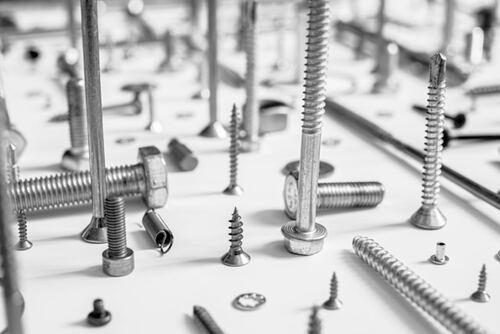
Rivets have become indispensable in heavy-duty industries, offering unmatched benefits that traditional fastening methods often fail to provide. These fasteners are not only robust but also versatile, making them ideal for various applications. Want to know how? Let’s explore why these rivets are a game-changer in heavy-duty sectors.
Enhanced Strength and Durability
When working with heavy-duty materials, the need for solid and durable fasteners is paramount. Structural rivets provide exceptional strength, ensuring that the joints remain secure under high stress and load conditions. Unlike screws or bolts, these do not loosen over time. It is critical in maintaining the integrity of structures such as bridges, buildings, and industrial machinery.
The durability of these rivets also extends to their resistance to environmental factors. They are often made from materials that are known for corrosion resistance, extreme temperatures, and other harsh conditions. Therefore, they are suitable for use in various environments without compromising their performance.
Efficiency in Installation
One of the most massive advantages of such rivets is the efficiency they bring to the installation process. These can be installed quickly and with minimal effort, reducing labour costs and time. It is particularly beneficial in large-scale projects where time and budget constraints are critical.
- No Need for Access on Both Sides: Unlike traditional fasteners that require access to both sides of the material, these can be installed from one side. It makes them ideal for applications where access is limited or where disassembly would be impractical.
- Consistent Performance: The installation process of such rivets ensures a consistent performance every time. The uniformity expands to fill the hole, creating a tight and secure fit that is reliable and repeatable.
Improved Safety
Safety is a top priority in heavy-duty industries. Structural rivets contribute to safer working conditions in several ways. Their design reduces the risk of loosening over time, which can prevent accidents caused by structural failures. Additionally, the use can eliminate the need for welding in some cases, reducing exposure to welding fumes and other associated hazards.
Versatility in Applications
These are incredibly versatile and can be used in various applications. From the automotive industry to aerospace and construction, these provide reliable fastening solutions that cater to multiple needs. Their adaptability makes them a preferred choice for projects that require robust and long-lasting joints.
In the automotive industry, such rivets are used in the assembly of frames, panels, and other critical components. In aerospace, they are essential for ensuring the structural integrity of aircraft. Their ability to maintain strength and performance under extreme conditions is a testament to their versatility and reliability.
Cost-Effectiveness
Cost is always a consideration in any industry, and structural rivets offer a cost-effective solution for many applications. The efficiency of installation reduces labour costs, and their durability means fewer replacements and maintenance over time. It translates to long-term savings and a better return on investment.
Moreover, these can often be installed with simple tools, eliminating the need for specialised equipment. It further reduces costs associated with purchasing and maintaining tools, making them an economical choice for heavy-duty applications.
Minimal Maintenance
Maintenance can be a significant expense in heavy-duty industries, but these rivets require minimal upkeep. Once installed, they provide a permanent and secure solution that does not need regular tightening or adjustments. It reduces the time and resources spent on maintenance, allowing for more efficient operation of facilities and equipment.
For anyone involved in heavy-duty industries, considering the integration of rivets into your projects can provide significant benefits. The benefits of using structural rivets in heavy-duty industries are undeniable. As industries demand more robust and reliable fastening solutions, these will undoubtedly play an essential role in shaping a more robust and safer future. By embracing these powerful fasteners, one can ensure that structures and machinery meet the highest standards of performance and reliability.





